Helen Birch Bartlett - 6 Short Poems (1917-27)
Forgotten Poems #88 || Reissue #5
—: October in Illinois :— October— A blood-red line, Low in the western sky— Grey everywhere— Cold and clear The frozen yellow fields— Nearness and distance interchangeable— A single rabbit-hawk Rapidly and sharply Winging its way Into the twilight.
—: Opiate :— I would bathe in the sky's blue! I would overflow the world with my laughter and my love! I would vanish like a circle upon the water! But I would not move To accomplish these— Or any other— Things.
—: Drift :— Two hours . . . . And the sombre, long kiss of leave-taking. Your eyes had accepted everything. And you sank into the long, useless future, While the present slowly disintegrated about us.
—: Prophets :— Prophet of joy! Before ever the deed lived, you came, Be the fulfilment what it was, I do prostrate myself for love and lay here at your feet my heart of thanks. Prophet of evil! It is now your hour!
—: The Old Orders Change :— The east wind blows into the room, The curtains twist and flap; I hear the thin brass rings slip back and forth Along the rod. I like to be alone to-night— I like the wind; It’s cold and strong, And in my heart There is a new metallic quietness. The world of yesterday Is dead— It died an hour or two ago.
—: Can This Be All :— Can this be all? Can this unfinished thing be called complete, And I be left to face it thus forever, Forever to twist and turn, remould and tint anew?
Helen Birch Bartlett (1883-1925) was, “a Chicago poet and musician” who spent time in New York. (Poetry, 1920) Bartlett’s verses first appeared in Harriet Monroe’s Poetry magazine in 1917, and she would go on to publish a single standalone collection of poems, Capricious Winds, in 1927.
Married to the artist Frederich Clay Bartlett. Together, they were well-known modern art collectors; “The Birch-Bartlett collection of modern paintings has been presented to the Art Institute by Bartlett in memory of his wife, and is to be known as the Helen Birch Bartlett Memorial. This group of pictures has been on exhibition in the galleries several times in the past and is well known to all students of the modern movement.” The collection included Georges Seurat's now famous 'A Sunday Afternoon on the Island of La Grande Jatte', alongside works by Paul Gauguin, Vincent van Gogh, Henri Matisse, Paul Cézanne, André Derain, et al. (Bulletin of the Art Institute of Chicago, 1926)
Today’s “after” poem got away from me a bit haha. What follows is probably a sketch for a longer work, though it will take some time to know for sure. Besides which, every song has multiple iterations—demos, studio and/or album versions, radio edits and extended plays, live versions, and so on—why not have multiple versions of a poem? All of which are both finished and unfinished, constantly made and remade by the other . . .
For Helen Birch Bartlett
By Dick Whyte
I.
the prophet speaks:
riddled
with riddles
amusing the muses
is the only task of poetry—
dance like a god!
& the rest?
good riddance!
II.
bound to the spine
of the wind
we leaven our beliefs—
a fine dust
covers the grass
each blade
in sharp relief
III.
ride to the river
three days
& like the reed
drink deep
observe the writhing
of worms
after the rain
these rituals
will aid in speaking
to the dead
IV.
further afield,
fruit fermenting
in the hollow of a skull
bleached by the sun
the moon insists:
it's just a phase
V.
branches
carved into ornate
staves
& cast like bones
in a cave
that sang of time
before the history
of horns
beyond the horizon
of herons
a place without need
of heroes
VI.
the first spells were names
& the first to be named
were the namers—
shadows are the oldest
kind of magic
language is the youngest
kind of shadow
Forgotten Poets Presents:
Forgotten Poems, a living anthology of obscure and out-of-print poetry from the late-1800s and early-1900s. Explore the archives:
More poems about the sky . . .
Pauline Leader - 4 Short Poems (1927-29)
—: The Market-Place :— Stuff of men you come and go like not-quite-mute-birds scattering their furtive symphonies in a small closed parallel where the sinews of the sky are only the top boards nailed down...
Emily Dickinson - 7 Very Short Poems (1863-1885)
“If I read a book and it makes my whole body so cold no fire can ever warm me, I know that is poetry. If I feel physically as if the top of my head were taken off, I know that is poetry. These are the only way I know it. Is there any other way.” (in a letter to T. W. Higginson, 1870)...
More poems about twilight . . .
The Dudley Sisters - 5 Short Poems (1914-1923)
The Dudley sisters were “famous in Chicago’s literary circles for their wit, exuberance, and talent.” (Poetry Foundation, 2024) Dorothy and Helen were poets, Caroline also wrote poetry and worked in the theatre, while Katherine was an illustrator and painter...
More poems about kissing . . .
Florence Kiper Frank - The Kiss (1915)
—: The Kiss :— Sheer joy of youth and madness of the moon And all the illimitable longings of my blood Leapt in me. I was half mad with the sweet Delirious feel of living...
Helene Johnson - 5 Short Poems (1925-26)
—: Trees At Night :— Slim sentinels Stretching lacy arms About a slumbrous moon; Black quivering Silhouettes, Tremulous, Stencilled on the petal Of a bluebell; Ink spluttered On a robin’s breast...
More poems about laughter . . .
Josephine Bell - 2 Short Poems (1919)
—: My Comrade :— I am laughing with the smell of the river; I am laughing with the hidden wind swelling up over the lap and shoulders, and winding about the neck of my green world; I am laughing with the sweeps of rank grass and the calm shining miles of floating river...


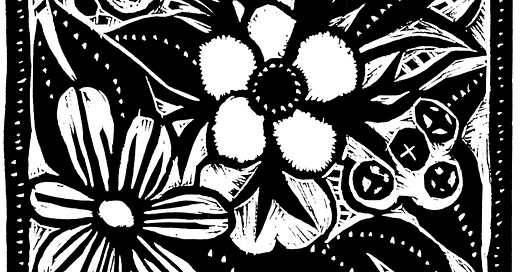










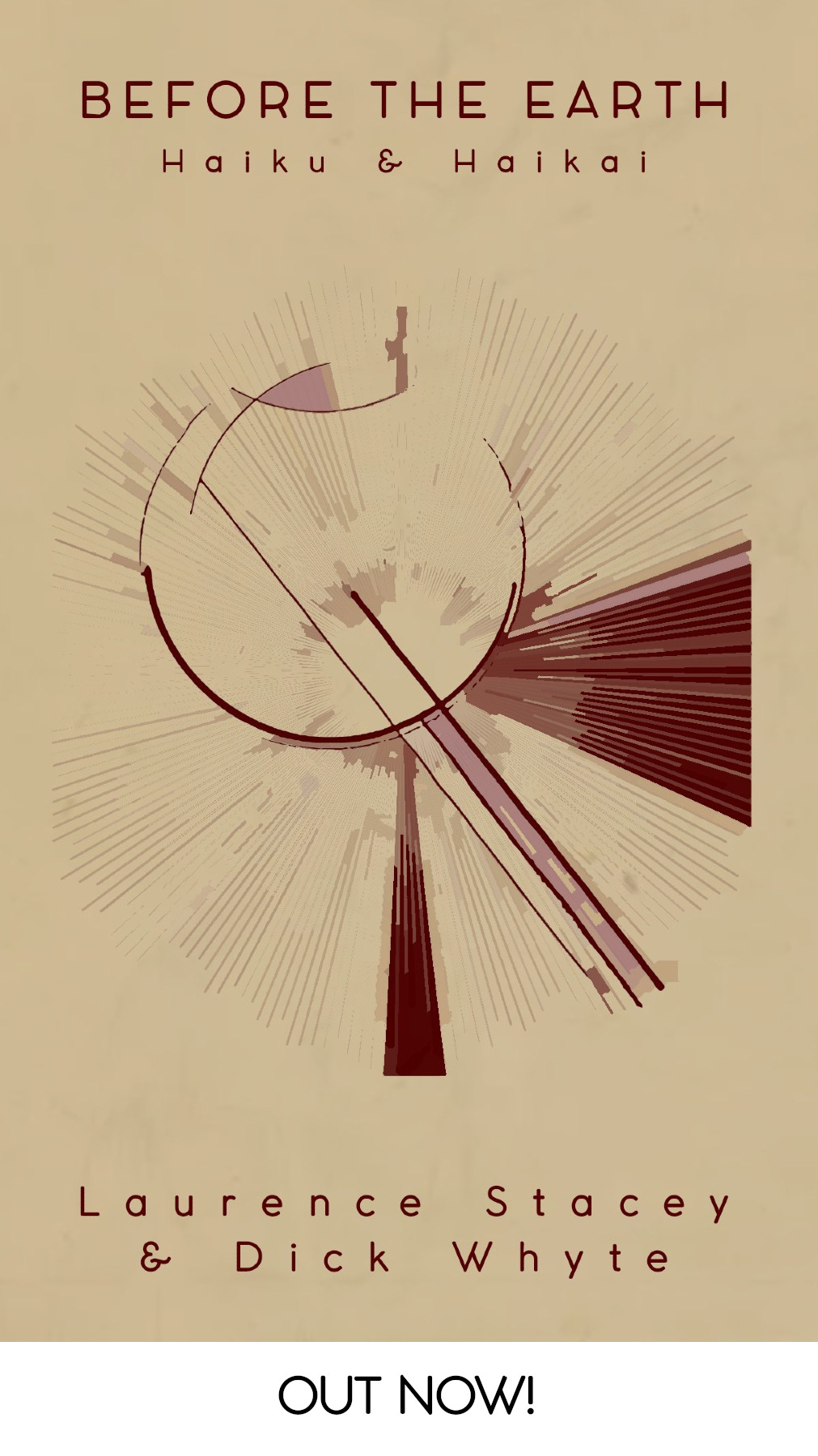
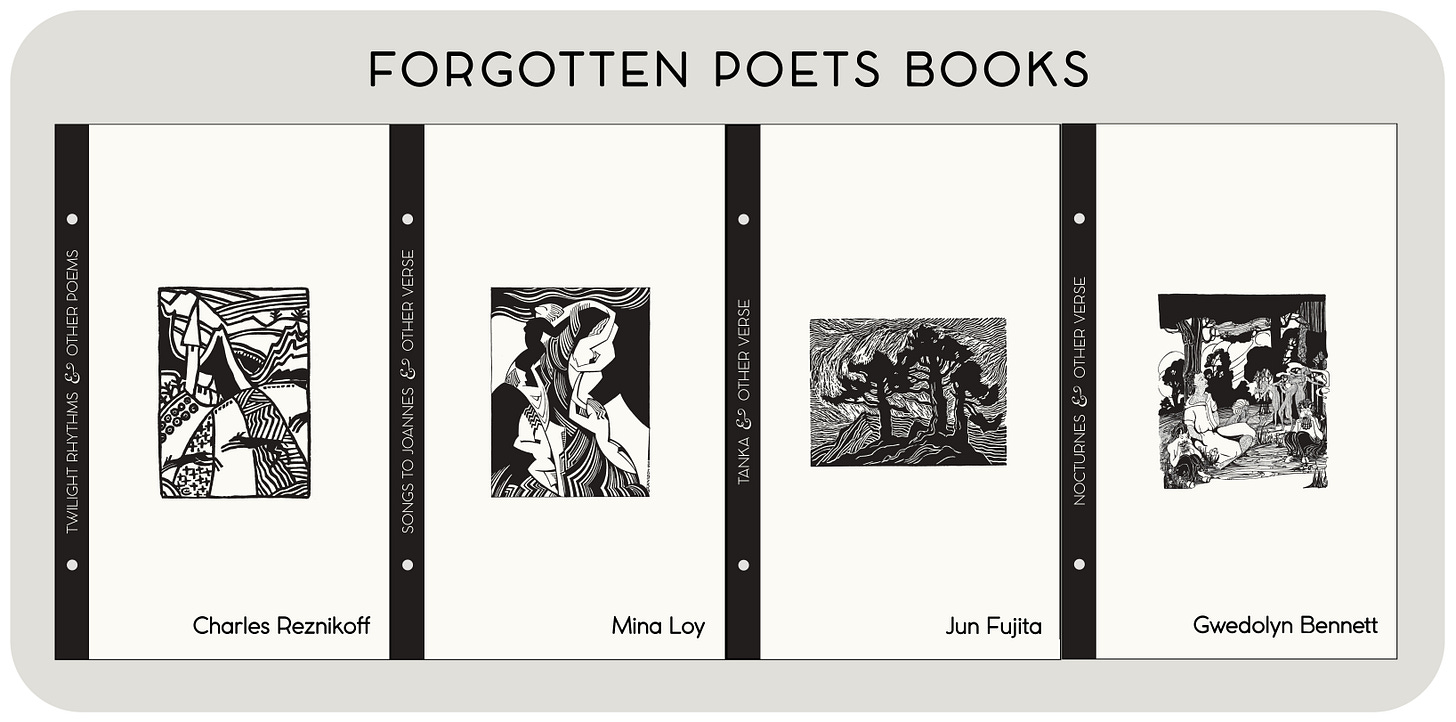


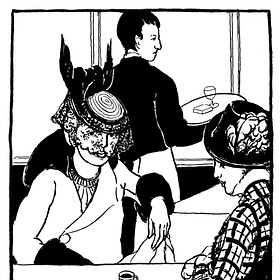
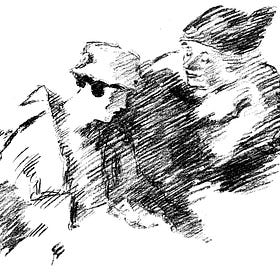


" the first spells were names
& the first to be named
were the namers—"
The magic of naming is quite the Pandora's box. I wonder if nature expected it.
I do this, too - pack in too much, and I need to back up and let it breathe a bit. The good thing is that once you cut, you have those extra bits to use elsewhere (as you note), even just as inspiration. As always, I am in awe of your work and appreciate that you share it with us here.